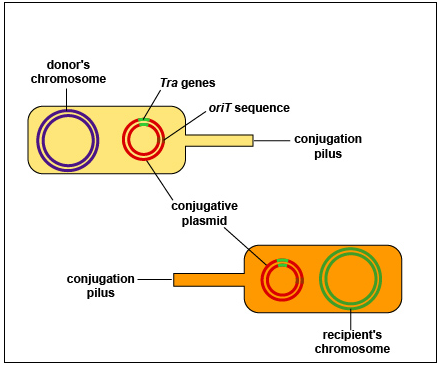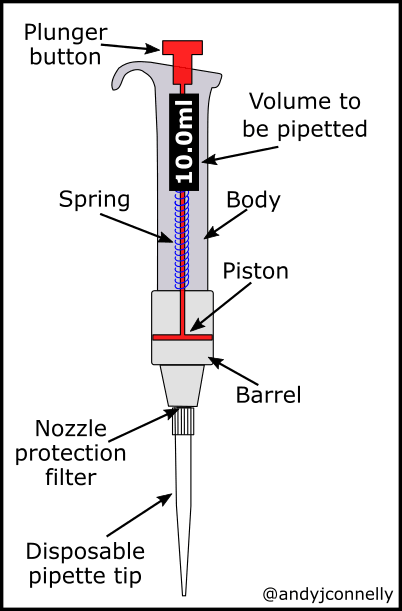NEET Class neet Answered
In Gram-negative bacteria, the first step in conjugation involves a conjugation pilus (sex pilus or F pilus) on the donor bacterium binding to a recipient bacterium lacking a conjugation pilus. Typically the conjugation pilus retracts or depolymerizes pulling the two bacteria together. A series of membrane proteins coded for by the conjugative plasmid then forms a bridge and an opening between the two bacteria, now called a mating pair.
Using the rolling circle model of DNA replication, a nuclease breaks one strand of the plasmid DNA at the origin of transfer site (oriT) of the plasmid and that nicked strand enters the recipient bacterium. The other strand remains behind in the donor cell. Both the donor and the recipient plasmid strands then make a complementary copy of themselves. Both bacteria now possess the conjugative plasmid.




